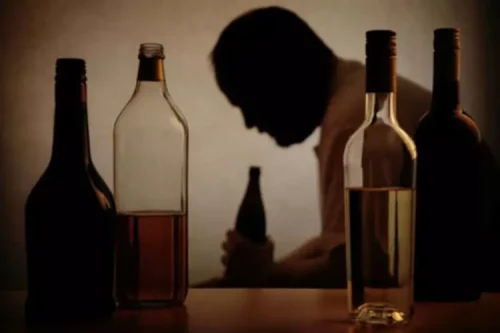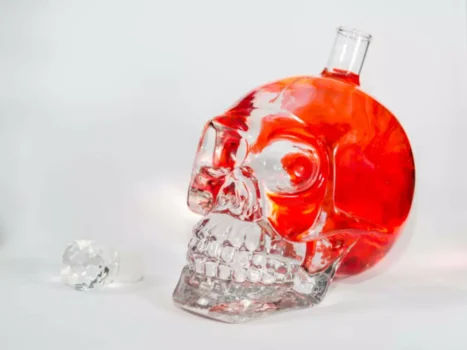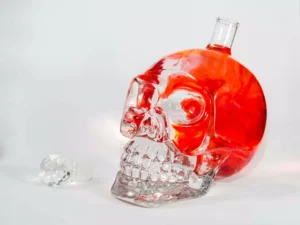
Pace yourself and limit alcohol intake to minimize impairment and risks. In some people, the initial reaction may feel like an increase in energy. But as you continue to drink, you become drowsy and have less control over your actions. Alcohol impairs your cerebellum, the part of your brain that’s responsible for coordinating your movements, Swartzwelder says. Plus, you’re more susceptible to an alcohol rehab accidental fall or bump after you’ve been drinking, anyway. However, giving up alcohol right away isn’t sustainable or desirable for most people.

How much is too much alcohol for my skin?

While alcohol can contribute to bruising, there are other factors to consider. Age, medications (such as blood thinners), genetics, and underlying medical conditions can all play a role in an individual’s propensity to bruise. It’s essential to consider these factors in conjunction with alcohol consumption when evaluating the cause of bruising. Alcohol can dilate blood vessels, leading to increased blood flow to the skin’s surface. This dilation can make blood vessels more susceptible to rupture, resulting in bruising. Additionally, alcohol can interfere with the body’s natural clotting mechanisms, further exacerbating the likelihood and severity of bruising.
- It centers on being more conscious and thoughtful of how much, how often, and why you drink.
- Learn about doxepin for sleep, including recommended dosages, how it works, and safety considerations.
- I have been doing the sessions for the last few weeks and it has been a life changer experience.
- Bruising can be one of the side effects of alcohol dependence, but it’s not the sole cause of it.
- Too much alcohol affects your speech, muscle coordination and vital centers of your brain.
Can alcohol-related bruises indicate a vitamin deficiency?
The problem is that alcohol is a wellspring of empty calories—which are calories with minimal nutritional value. Hence, consuming alcohol as your primary source of fuel will lead to poor nutrition and weight loss. If you’ve noticed consistent weight gain, it may be time https://ecosoberhouse.com/ to reflect on your drinking habits.
Reasons for Bruises After Drinking
Excessive alcohol consumption can weaken the blood vessels in the skin, making them more prone to damage and discoloration. Yes, alcohol consumption can thin the blood and make blood vessels more susceptible to rupture, increasing the likelihood of bruising. Unexplained bruises and scrapes may be observed more frequently, and alcoholics can have reduced platelet counts and other clotting factors, making them more likely to bruise. This is especially true when you consider the increased likelihood of them falling. Alcohol’s effects on skin can be quite visible not long after drinking. It’s common to notice mysterious bruises the morning after drinking alcohol.
- When it comes to drinking, remember to always prioritize your well-being and make appropriate decisions.
- Consuming food while drinking alcohol may reduce the pace at which alcohol is absorbed into your circulation.
- Learn how temperature impacts your rest and tips for a comfortable night’s sleep.
- If you notice that you or someone you know is bruise easily, it may be a sign of alcoholism.
- In the long-term, these vessels can over-dilate, leading to spider veins on the skin.
- When someone develops an alcohol use disorder, they will show signs or symptoms that are characteristic of this condition.
- Second, alcoholism can lead to a condition called thrombocytopenia, which is a low level of platelets in the blood.
- Chronic alcohol misuse can also lead to liver disease, which often causes bruising.
- Limiting alcohol consumption, staying hydrated, and maintaining a balanced diet rich in vitamin K can help support your body’s ability to clot blood effectively.
While alcohol may have numbing effects that temporarily reduce pain, its overall impact on bruising is negative due to its blood-thinning properties. All types of alcohol can contribute to bruising, as it’s the alcohol content itself that affects blood thinning and blood vessel fragility. Consuming enough water is one efficient way to promote optimal hydration. Consider drinking a glass or two of water before indulging in your favorite alcoholic beverage. One method is to alternate between alcoholic beverages and glasses of water.

Long-Term Impact of Alcohol on Bruising and Bleeding
In other words, bruising alone isn’t enough to diagnose alcoholism, but it can be a sign. When that happens, alcohol and bruising the person convulses uncontrollably and may harm themselves or others in the process, potentially leading to bruises. This increased blood flow means more blood might escape the vessel if it ruptures. Vasodilation is the widening of the blood vessels caused by the relaxation of the muscles in these blood vessels.
- These effects make it easier for blood vessels to rupture and lead to bruising.
- A chronically damaged liver may not produce the proteins required for coagulation.
- This will assist in avoiding dehydration and allow you to thoroughly enjoy your night without any unwanted repercussions.
- In addition, some alcoholic beverages, such as wine and beer, are high in calories, so regular consumption of these drinks can lead to weight gain.
Alcohol is a commonly consumed beverage worldwide, and its effects on the body have been extensively studied. One question that often arises is whether drinking alcohol can cause bruising. Consistently drinking over a period of time leads you to develop a tolerance to alcohol. If you suddenly stop drinking, this can lead to a number of uncomfortable alcohol withdrawal symptoms. It often drives people with alcoholism to keep drinking in order to limit these symptoms.
